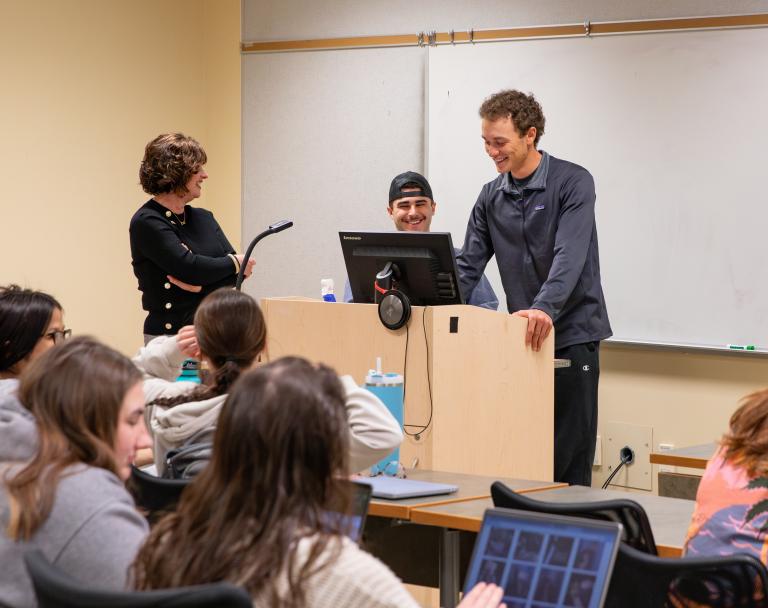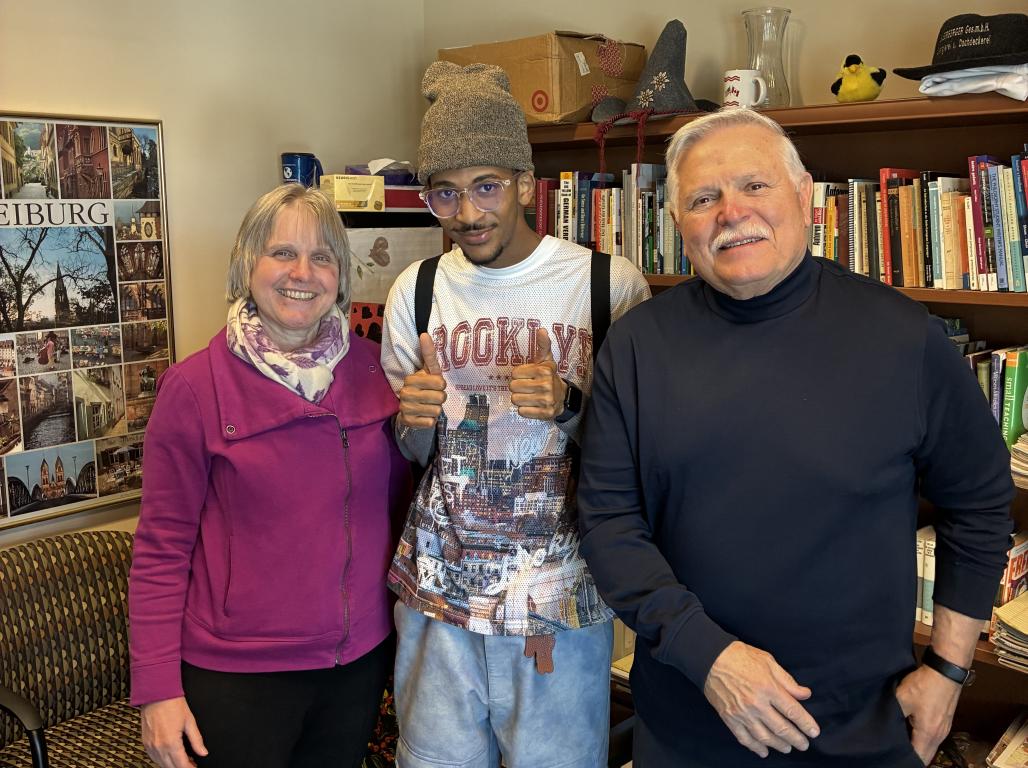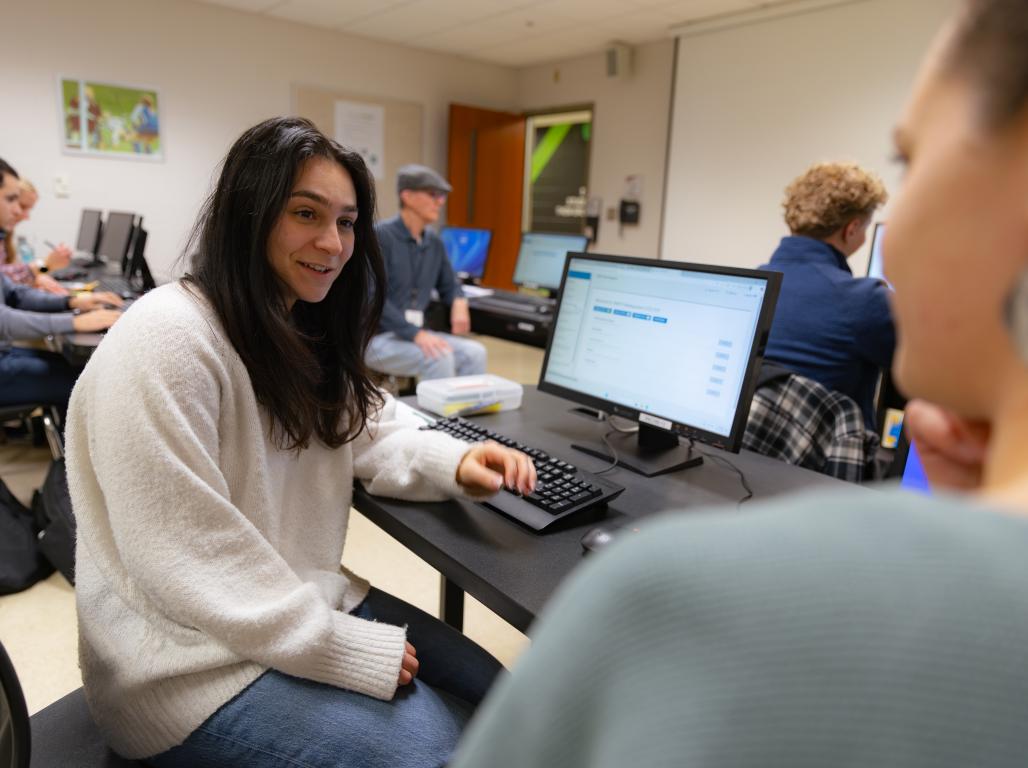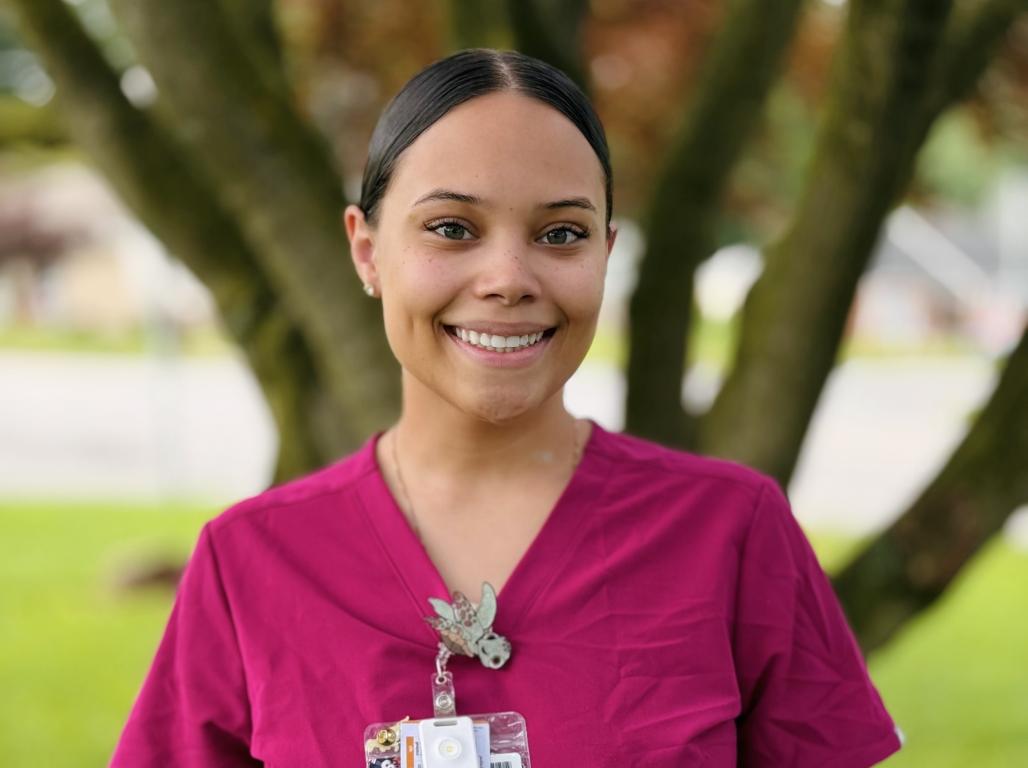York College Students Become Partners in Improving Access to Services for York Residents

Students in the courses Concepts of Social Media Platforms and Program Design and Evaluation are helping to streamline and support the Connect York initiative for York County.
Access to critical services can make the difference between thriving and struggling, but finding the right support among York County’s network of nonprofits, government agencies, and service providers can feel overwhelming. With the assistance of students in two York College of Pennsylvania courses, a new initiative called Connect York is working to streamline the process and make it easier for residents to locate and receive the help they need.
At the foundation of Connect York is connectyork.org, a centralized online platform that links residents with local resources, programs, and services. Users enter their zip code and select the areas where they need help, such as food, housing, healthcare, or transportation. The site then provides a tailored list of nearby organizations and services, complete with contact information, eligibility details, and ways to get support. It’s a free, confidential method to find help and connect to resources quickly and easily.
A project-based learning opportunity
In a Concepts of Social Media Platforms course taught by Donna Grove, Ed.D., Assistant Professor of Sport Management, students have taken on the challenge of exploring Connect York’s target demographic, developing social media strategies, and creating social media content. Students have also been studying Connect York in a Program Design and Evaluation course taught by Robyn Maitoza, Ph.D., Associate Professor of Human Services. They have been evaluating the data created by users of the Connect York website.
“They’re asking questions to individual users, holding sessions on user evaluation, and collecting and analyzing a lot of data,” says Kevin Jackson ’99, a graduate of York College’s Master of Business Administration program. As a York College Board of Trustees member and Connect York’s Project Manager, Jackson is at the heart of making Connect York a success and bringing the College’s students along in the process.
With an executive corporate background and extensive experience in business, technology and consulting, Jackson was recruited by Family First Health, the primary fiduciary of Connect York, to lead the project through its development and launch in October 2024. He quickly recognized the potential of integrating York College students into the project through hands-on learning experiences.
“We always talk about project-based learning at York College, and this was the perfect opportunity to bring students into real-world problem-solving,” Jackson says.
The initiative needed expertise in social media, user experience, and evaluation, and York College had the right talent to help make Connect York even more impactful. Students not only gain professional experience but contribute meaningfully to a community resource designed to improve lives.
Students get to work
For Isabella Ewing ’25, a student in the Master of Public Policy and Administration program with a self-designed Sports Philanthropy major and Business Administration minor, the project has provided a deeply personal and practical experience.
“My group is primarily focusing on the usability of the website for different identities. We are calculating how easily those who have diverse backgrounds are able to find resources that are actually going to help them,” she says. “This experience is different because the meaning of it is so much deeper. We are helping the community that we now live in get access to resources that can help improve their lives.”
Psychology major Gabe Norwood ’25 has become a leader in the project, coordinating interviews with nonprofit organizations to increase awareness of Connect York while gathering insights for improvement.
“I’ve learned that nonprofit work requires a lot of convincing and selling your value to a community,” he says. “Additionally, I’ve learned that to engage a community, you need to have a product that people actually want, and not only the community but the organizations as well.”
Olivia Buckley-Uzmed ’25, a Human Resource Management major with a Sociology minor, has been conducting a usability study to refine the platform’s accessibility and effectiveness.
“It’s also become more clear to me the importance of community engagement in nonprofit work,” she says. “The website is intended to help communities, so more engagement from the community is useful for the success of the site.”
Crafting a story that connects
Taylor Herr ’24, a Human Resource Management major, spent the semester diving deep into the social media side of Connect York for her Concepts of Social Media Platforms class.
“Working with Connect York through an asynchronous class has been a transformative experience,” she says. “It has taught me the power of creating meaningful content that not only informs but also connects individuals. The process has deepened my understanding of how social media can bridge gaps, fostering a sense of community and shared knowledge."
Miranda Jews ’25, a Forensic Chemistry major, agrees.
“Contributing to this brand's messaging has broadened my perspective on the importance of clear, meaningful communication,” she says. “Creative branding lies in the ability to craft a story that connects with the audience, and this idea has been essential in promoting Connect York's mission of fostering the health and wellness of the York community."
Professional growth and community impact
Beyond enhancing Connect York’s operation, the students have gained critical professional skills, from conducting research to navigating real-world challenges in nonprofit work. For Isabella, the mentorship of Jackson, Dr. Grove, and Dr. Maitoza has boosted her confidence in presenting findings and collaborating with professionals.
Gabe, who aspires to be a police officer, sees practical applications for Connect York in community policing. He believes having such a tool would be extremely valuable when working with the public and directing people to the help they need.
Jackson is grateful to the York County commissioners for approving the funding of the project. He envisions an ongoing relationship between York College and Connect York. With about 30 students per class contributing fresh ideas and energy, the initiative is evolving rapidly. Its goals include expanding Connect York’s referral system, improving data collection to inform funding decisions, and increasing the community’s acceptance of the program.
“We always recognized it wasn’t the software that would bring change; it would be the people and collaboration and breaking down the silos,” Jackson says.
York College’s Center for Community Engagement serves as a hub for the students’ efforts, offering workspace and research support. There also is the potential for summer internships and additional course collaborations. Through this partnership, York College students are helping to shape the future of providing community resources in York County.
For more information, visit www.connectyork.org.




